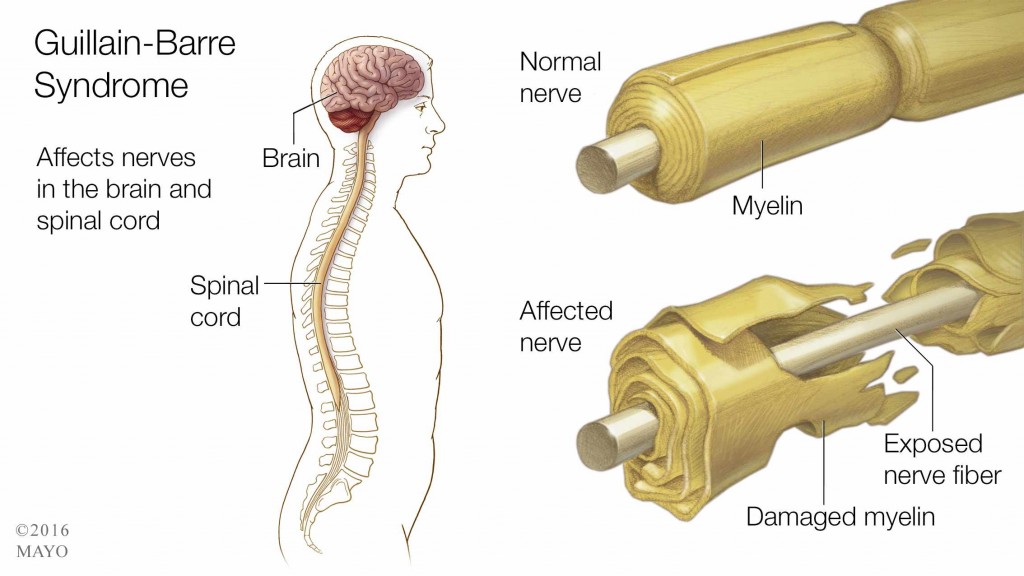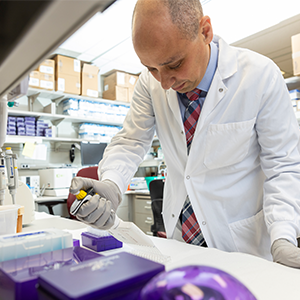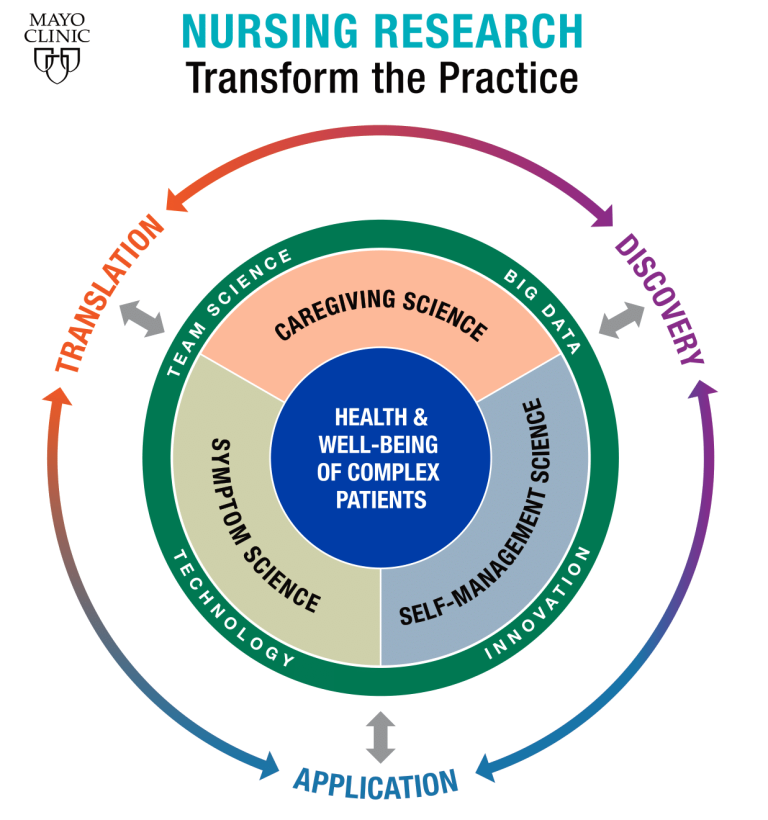
Officials with the World Health Organization (WHO) are exploring a possible link between Zika virus and a neurological disorder called Guillain-Barre syndrome (GBS). GBS is a rare disorder in which the body's immune system attacks the nerves, causing numbness and weakness, and in severe cases, paralysis. Right now there is no proven link between Zika virus and GBS, but the WHO reports an increase in GBS cases in outbreak areas, including Brazil, Colombia, El Salvador, Suriname and Venezuela.
Mayo Clinic neurologist Dr. P James B. Dyck says, "While there is not yet data to prove the link, there seems to be an increase in GBS cases in areas where Zika virus is active. If you've had a viral illness or have been in one of these areas and begin to develop numbness or weaknesses, it is reasonable to go to your local doctor or Emergency Department. But also keep in mind that GBS is rare."
The exact cause of Guillain-Barre syndrome is unknown, but the condition is often preceded by an infectious illness. Guillain-Barre syndrome usually begins with a tingling and weakness in the feet and legs that spreads to the upper body and arms. A small percentage of people experience the numbness and tingling in the face or arms first. In some cases, the condition progresses very rapidly.
Guillain-Barre syndrome symptoms may include:
- Prickling, "pins and needles" sensations in the fingers, toes, ankles or wrists
- Weakness in your legs that spreads to the upper body
- Unsteady walking or inability to walk or climb stairs
- Difficulty with eye or facial movements, including speaking, chewing or swallowing
- Severe pain that may feel achy or cramp-like and may be worse at night
- Difficulty with bladder control or bowel function
- Rapid heart rate
- Low or high blood pressure
- Difficulty breathing
Doctors who see suspected cases of GBS can confirm the diagnosis with tests such as spinal taps, to look for elevated levels of a certain protein, and nerve condition studies, during which electrodes are taped to the skin near a nerve and a small shock is passed through the nerve to measure the speed of nerve signals.
There's no cure for Guillain-Barre syndrome. But two types of treatments can speed recovery and reduce the severity of the illness:
- Plasma exchange (plasmapheresis). The liquid portion of part of the blood (plasma) is removed and separated from the blood cells. The blood cells are then put back into the body, where they manufacture more plasma to make up for what was removed. Plasmapheresis may work by ridding plasma of certain antibodies that contribute to the immune system's attack on the peripheral nerves.
- Immunoglobulin therapy. Immunoglobulin containing healthy antibodies from blood donors is given through a vein (intravenously). High doses of immunoglobulin can block the damaging antibodies that may contribute to Guillain-Barre syndrome.
Dr. Dyck says Guillain-Barre syndrome can be very scary, but with treatment, most cases resolve.
Listen to Dr. Dyck discuss Guillain-Barre syndrome
Journalists: Broadcast quality sound bites with Dr. Dyck and b-roll can be found in the downloads.







